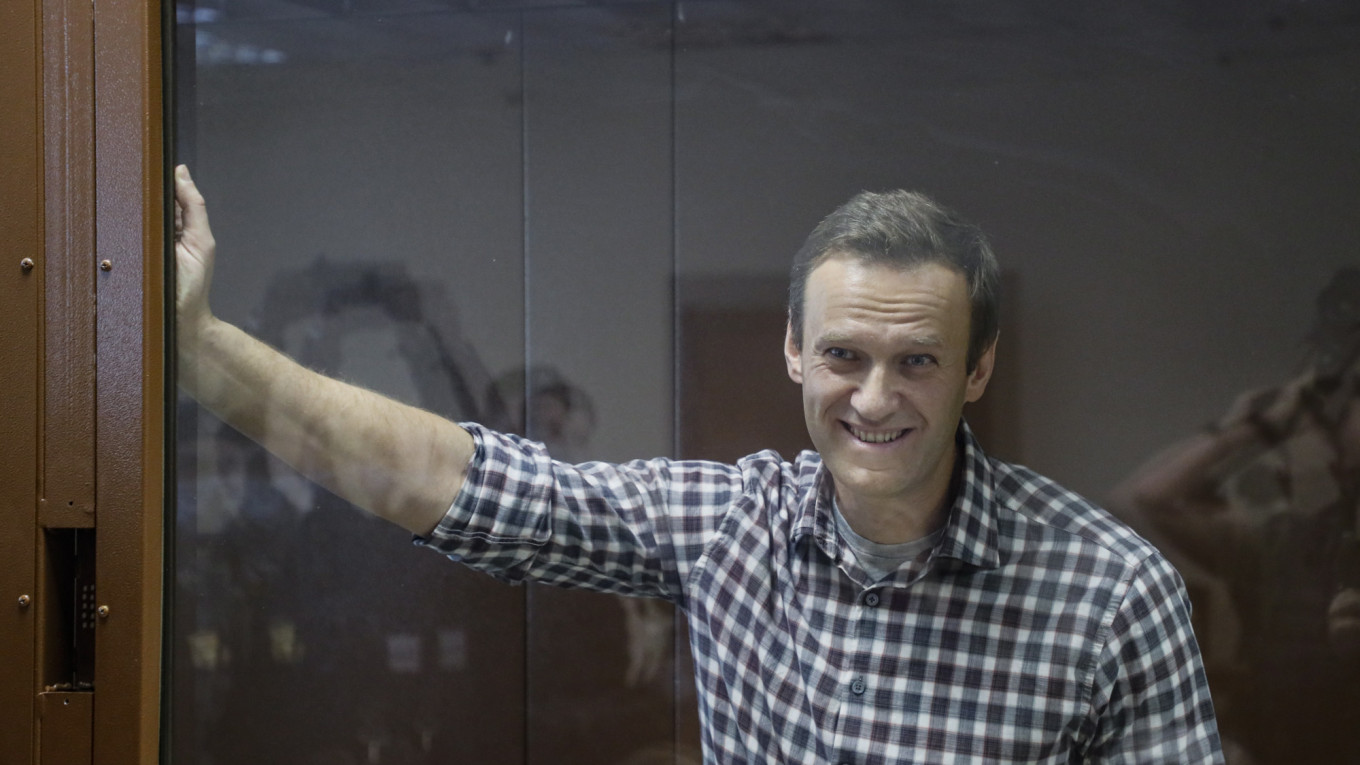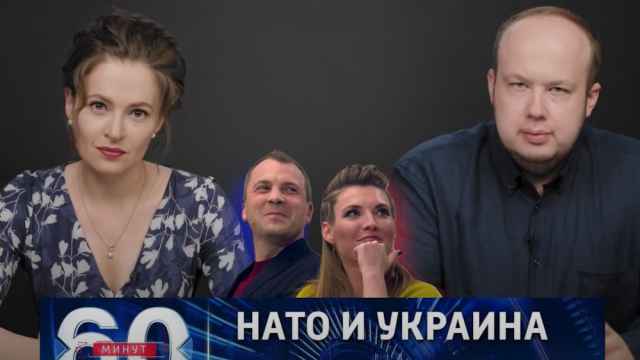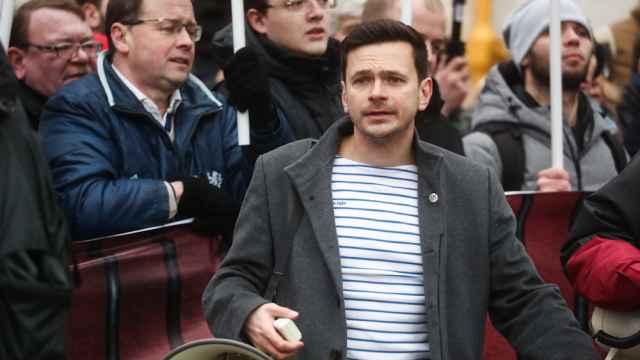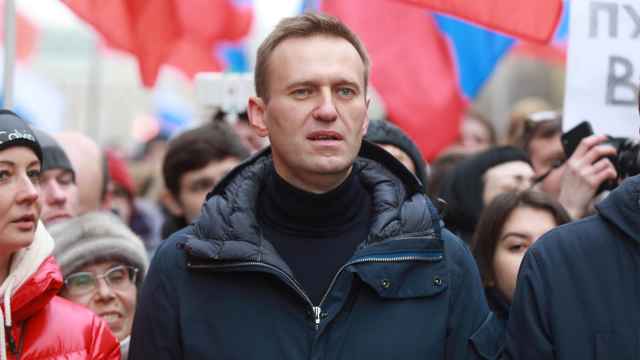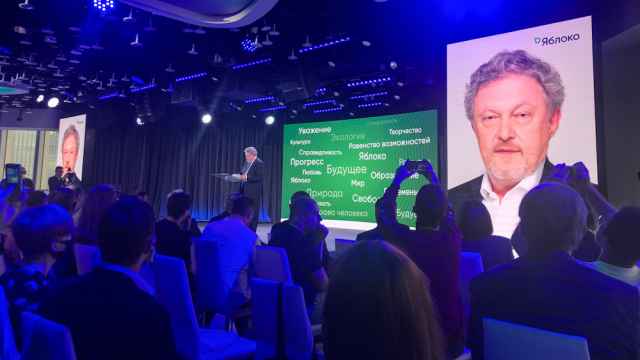A Moscow court on Saturday upheld a ruling to jail the Kremlin's most prominent opponent Alexei Navalny, sealing his first lengthy prison sentence after a decade of legal battles with Russian authorities.
Another court also convicted Navalny on defamation charges — part of a slew of cases he has faced since returning to Russia from Germany last month after a poison attack he blames on the Kremlin.
In the first hearing on Saturday, Judge Dmitry Balashov dismissed Navalny's appeal of a decision to imprison him for violating the terms of a suspended sentence on embezzlement charges he says were politically motivated.
Navalny, 44, was ordered on Feb. 2 to serve two years and eight months in a penal colony for breaching his parole terms while he was in Germany recovering from the nerve agent.
The anti-corruption campaigner appeared in court inside a glass cage for defendants, wearing a plaid shirt, smiling and flashing the V for victory symbol.
In a closing address that often broke from his usual sarcastic tone, Navalny referenced the Bible and said he had no doubts about his decision to return to Russia.
"The Bible says: 'Blessed are those who hunger for righteousness, for they will be satisfied,'" he told the court.
"I have no regrets that I am back."
He also quoted from a character in the Harry Potter books, saying it was "important not to feel alone" because that was what the series' villain Voldemort wanted.
He described the legal process to jail him as "absurd" and called on Russians to take action to make the country a better place.
"Russia should be not only free, but also happy," Navalny said.
Prosecutors said Navalny had acted as if he was above the law and had "an exclusive right to do as he pleases".
The judge did decide to count six weeks Navalny was under house arrest as part of the time served, so he will now be imprisoned for just over two-and-a-half years.
Hours later another judge convicted Navalny of defamation for calling a World War II veteran a "traitor" for appearing in a pro-Kremlin video.
Judge Vera Akimova ordered him to pay a fine of 850,000 rubles ($11,500).
The 94-year-old veteran appeared in a video that Navalny derided for promoting constitutional reforms, passed last year, that could allow President Vladimir Putin to stay in power until 2036.
The defamation was widely covered on state television and Navalny accused Russian authorities of using the veteran as a "puppet" to try to discredit him.
"One day of this trial costs much more than the veteran got in the last four years from the very state that dares to claim it cares about veterans," Navalny said.
Supporters of the outspoken opposition figure say the cases are a pretext to silence his corruption exposes and quash his political ambitions.
The Kremlin said it had nothing to do with Navalny's court cases and that the decision to reject his appeal would not alter Russia's political landscape in the run-up to parliamentary elections later this year.
"Political life will be rich and multifaceted," Putin's spokesman Dmitry Peskov said.
Western pressure for release
Russia has come under increasing Western pressure to release Navalny since he was detained on arrival at a Moscow airport in January.
He had spent months recovering in Germany from the attack with Novichok that saw him fall ill on a Siberian flight in August. Russia has repeatedly denied involvement.
His arrest last month sparked large demonstrations across the country while the European Union threatened to impose new sanctions on Moscow.
More than 10,000 people were detained at the protests, with many of Navalny's allies now under house arrest, and his team has said there will be a break in demonstrations until later this year.
Europe's rights court ruled this week that Russia must immediately release Navalny, a motion swiftly brushed aside by the justice ministry.
EU foreign ministers, who are considering fresh sanctions over Navalny's arrest, are due to meet with two top Navalny aides in Brussels on Sunday.
A Message from The Moscow Times:
Dear readers,
We are facing unprecedented challenges. Russia's Prosecutor General's Office has designated The Moscow Times as an "undesirable" organization, criminalizing our work and putting our staff at risk of prosecution. This follows our earlier unjust labeling as a "foreign agent."
These actions are direct attempts to silence independent journalism in Russia. The authorities claim our work "discredits the decisions of the Russian leadership." We see things differently: we strive to provide accurate, unbiased reporting on Russia.
We, the journalists of The Moscow Times, refuse to be silenced. But to continue our work, we need your help.
Your support, no matter how small, makes a world of difference. If you can, please support us monthly starting from just $2. It's quick to set up, and every contribution makes a significant impact.
By supporting The Moscow Times, you're defending open, independent journalism in the face of repression. Thank you for standing with us.
Remind me later.


